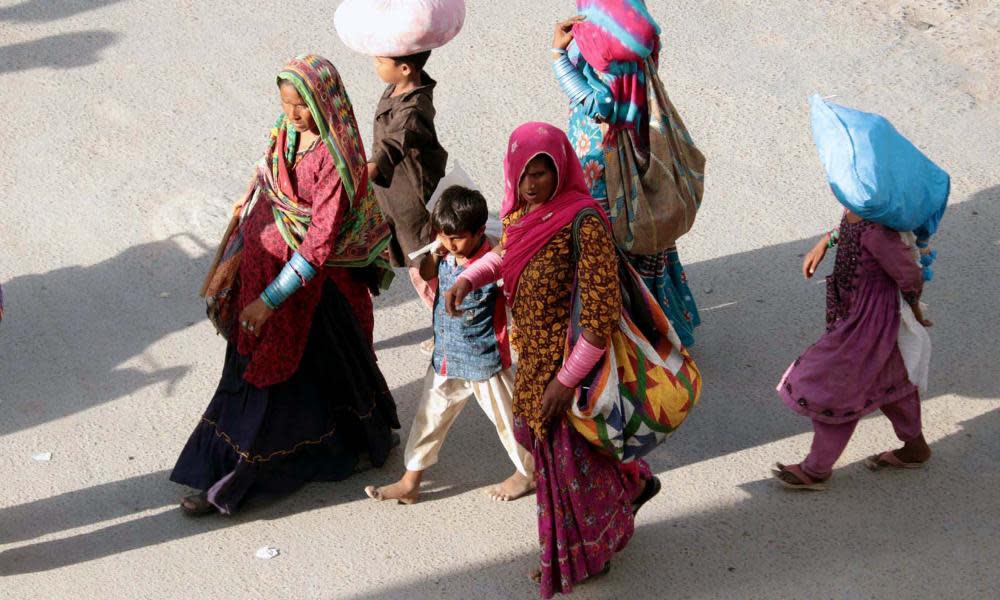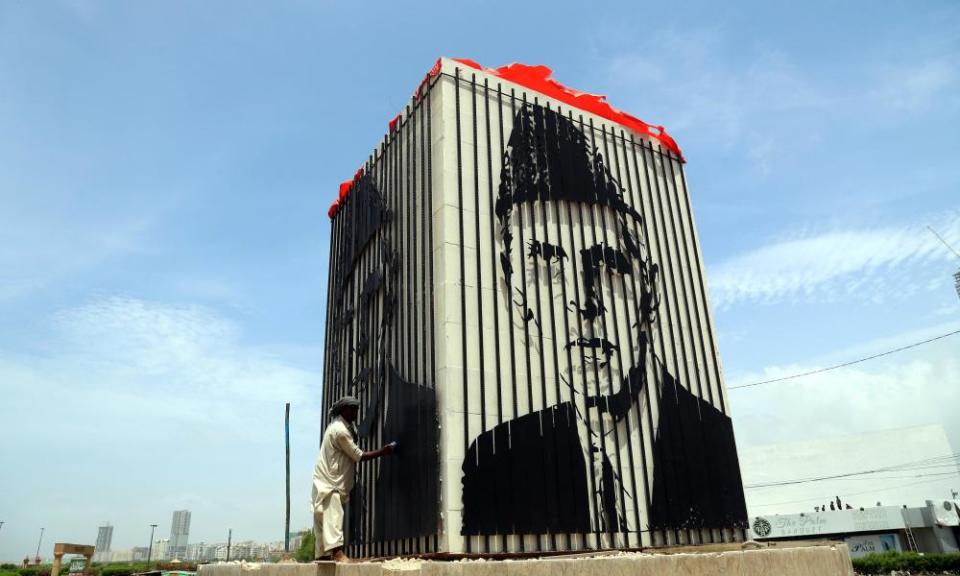The Nine Lives of Pakistan by Declan Walsh review – first-rate reportage

Declan Walsh begins his captivating new book on Pakistan with an account of how he came to leave the country for the first time, abruptly and involuntarily in May 2013. “The angels came to spirit me away,” is the way he puts it, using the Urdu slang for the all-powerful men of the Inter-Services Intelligence (ISI), whose presence is felt, even when not seen, throughout The Nine Lives of Pakistan.
The ISI goons give Walsh no hint as to why he is being kicked out, and the government officials he quizzes simply shrug. His quest to unravel that mystery drives the narrative of the book as he goes back through his nine years as a correspondent in Pakistan, first for the Guardian and then for the New York Times, in search of an answer. The solution to the riddle, which emerges out of the haze, says a lot about the turbulent, fractious country Walsh is trying to understand.
The subtitle of the book is Dispatches from a Divided Nation and the author criss-crosses those political, religious, ethnic and generational fault lines, assembling a portrait of the vast country of 120 million people through his travels and the lives of the nine compelling protagonists.
Walsh is a wonderful writer, with a gift for sketching an impression of a place, time and ambience with a few brief lines. He knows how to interweave travelogue with an account of the relentless tensions that always threaten to burst through each vignette in the book. What also shines through is the relish with which Walsh throws himself into the far corners of Pakistan, into crowds, celebrations and rites, with a drive born of fascination with the land and its people.
He is not a war correspondent. Most of the time he is not looking for trouble, and it is hard not to envy him all the parties and feasts to which he finds himself invited. He seeks out oversized characters and makes sure not just to interview them, but to linger at their shoulder to experience Pakistan through their eyes and ears. These are eight of the nine lives of the title. The ninth is Pakistan’s conflicted and complicated founding father, Muhammad Ali Jinnah, a spectral presence.

It says a lot about Pakistan’s bloody history that only one of the nine subjects is still alive by the end of the book. Five of them meet violent ends, either killed by jihadists or the security forces. “You see, this murder and fighting business is very tricky,” as one brave Pashtun politician says, summing up local politics in the northwest. Accompanying him as he went from village to village campaigning, Walsh observes drily: “I didn’t see a single woman. Guns, on the other hand, were everywhere.”
By the end of The Nine Lives of Pakistan, it seems almost unbelievable that the author himself has survived the experience. The death rate among his subjects is just one measure of the dangers of doing Walsh’s job. As Pakistan’s home-grown Taliban rise in 2006 and 2007, more and more areas become unsafe, and the violence eventually surges into the capital, Islamabad. Within a few blocks of Walsh’s home, a courthouse, a UN office and an army checkpoint are all bombed.
Many extremist groups looked on western journalists as legitimate targets, for kidnapping at least, and at one point Walsh is saved by the man he has hired a car from. Overhearing a group of men discussing the logistics of grabbing Walsh, the rental man bundled the Irish journalist into the vehicle and sped away.
Islam or the army were supposed to be the glue holding the place together. Yet both seemed to be tearing it apart
Declan Walsh
There was nothing inevitable about Pakistan’s association with extremism. After wrestling with the issue, Jinnah recommended a secular republic from his deathbed. After Partition in 1947, Walsh explains, imams lost their sway in society, sinking to a status somewhere between a teacher and a tailor in the villages.
That all changed when a pious general, Muhammad Zia-ul-Haq, seized power in 1977, hanging the democratically elected prime minister, Zulfikar Ali Bhutto, and opening the door to a “harsh unyeielding brand of Islam” imported from Saudi Arabia, whose princes and clerics Zia allowed to seed his country with madrassas.
Then the Soviets invaded Afghanistan at the end of 1979 and Zia’s Pakistan, instead of becoming an international pariah, was embraced by the west as a bastion against communism. Jinnah’s dream for the “land of the pure” has been sacrificed to the two beasts of violent religious extremism and militarism. “Depending on who you asked, Islam or the army were supposed to be the glue holding the place together,” Walsh writes. “Yet both, in their own way, seemed to be tearing it apart.”
By the end of Walsh’s time in Pakistan, the winner in this epic struggle is clear: the ISI and the military machine that stands behind it. “It seemed to boil down to one hard truth: the military always wins,” his realises as he prepares to leave, never to return. “When the ISI men come to the door, the illusion of a democratic state melts away.”
• The Nine Lives of Pakistan: Dispatches from a Divided Nation is published by Bloomsbury (£20). To order a copy go to guardianbookshop.com. Delivery charges may apply.


